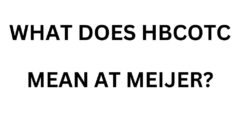Where Did “Guess What? Chicken Butt” Come From?
Have you ever found yourself in a lighthearted conversation with friends or family, only to hear someone interject with the phrase “Guess what? Chicken butt!”? This playful and often silly response has become a popular catchphrase in recent years, but where did it originate? In this article, we will explore the origins of the “Guess what? Chicken butt” phrase, its cultural significance, and how it has evolved over time.
The Origins of “Guess What? Chicken Butt”
The exact origins of the “Guess what? Chicken butt” phrase are difficult to trace, as it has likely evolved organically through informal conversations and jokes. However, it is believed to have gained popularity in the late 20th century, particularly among children and adolescents.
One theory suggests that the phrase may have originated as a playful response to the question “Guess what?” in an attempt to inject humor into the conversation. The addition of “chicken butt” serves as a nonsensical and unexpected punchline, eliciting laughter and creating a light-hearted atmosphere.
Another theory proposes that the phrase may have been inspired by a similar joke structure known as a “butt joke.” Butt jokes involve a setup where the punchline is a word that rhymes with “butt,” such as “peanut butter” or “watermelon rind.” The “Guess what? Chicken butt” phrase follows this structure, substituting the expected rhyming word with “chicken butt.”
Read:What watt bulb for leopard gecko 20 gallon tank?The Cultural Significance of “Guess What? Chicken Butt”
Over time, the “Guess what? Chicken butt” phrase has become ingrained in popular culture, particularly in Western countries. It is often used as a playful response to lighten the mood or inject humor into a conversation. The phrase has gained popularity among people of all ages, but it is especially prevalent among children and adolescents who enjoy engaging in light-hearted banter.
One reason for the phrase’s cultural significance is its simplicity and accessibility. The use of familiar words and a straightforward structure make it easy to understand and replicate, allowing it to spread quickly through word-of-mouth and social interactions. Additionally, the phrase’s nonsensical nature adds to its appeal, as it creates a sense of absurdity and surprise.
Furthermore, the “Guess what? Chicken butt” phrase has found its way into various forms of media, including television shows, movies, and internet memes. Its inclusion in popular culture has further solidified its place as a recognizable catchphrase.
The Evolution of “Guess What? Chicken Butt”
Like many catchphrases, “Guess what? Chicken butt” has evolved over time, adapting to different contexts and audiences. While the core structure of the phrase remains the same, variations and adaptations have emerged, adding new layers of humor and creativity.
Read:What are the apn settings for assurance wireless?One common variation involves extending the phrase with additional rhyming words, such as “Guess why? Chicken thigh” or “Guess where? Chicken hair.” These variations maintain the playful and nonsensical nature of the original phrase while introducing new elements of surprise and wordplay.
Another evolution of the phrase involves incorporating it into longer jokes or humorous anecdotes. For example, someone might start a joke with “Guess what? Chicken butt,” and then proceed to tell a humorous story or punchline related to chickens or butts. This expansion of the phrase allows for more comedic possibilities and keeps the joke fresh and engaging.
Examples of “Guess What? Chicken Butt” in Popular Culture
The “Guess what? Chicken butt” phrase has made its way into various forms of popular culture, showcasing its widespread recognition and appeal. Here are a few examples of its usage:
- In the animated television show “Family Guy,” the character Peter Griffin uses the phrase as a response to a question from his wife, Lois, in a comical and unexpected manner.
- In the movie “Superbad,” the character Seth, played by Jonah Hill, uses the phrase during a humorous exchange with his friend Evan, played by Michael Cera.
- Internet memes featuring the phrase have circulated on social media platforms, often accompanied by humorous images or videos.
The Psychological Impact of Humor
Humor plays an essential role in human interactions, providing numerous psychological and social benefits. Laughter and humor have been shown to reduce stress, improve mood, and strengthen social bonds. The “Guess what? Chicken butt” phrase taps into these benefits by creating a lighthearted and amusing atmosphere.
Read:What a long sweet trip it’s been dragonflight?When someone uses the phrase in a conversation, it often elicits laughter and amusement from those involved. This positive response can help to establish a sense of camaraderie and shared humor, strengthening social connections and fostering a positive atmosphere.
Summary
The “Guess what? Chicken butt” phrase has become a popular catchphrase in recent years, known for its playful and nonsensical nature. While its exact origins are difficult to trace, it is believed to have gained popularity in the late 20th century among children and adolescents. The phrase’s cultural significance lies in its simplicity, accessibility, and ability to inject humor into conversations. Over time, it has evolved through variations and adaptations, maintaining its appeal and spreading through popular culture. The psychological impact of humor further contributes to the phrase’s widespread recognition and positive reception. So, the next time you hear someone say “Guess what? Chicken butt,” you can join in the laughter and appreciate the light-heartedness it brings to the conversation.









